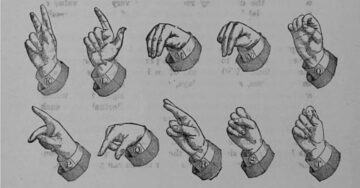Sarah Marsh in The Millions:
 When I was editing my debut novel, A Sign Of Her Own, a quote from Ilya Kaminsky’s poetry collection, Deaf Republic, kept me company. “The deaf don’t believe in silence,” he writes, “silence is the invention of hearing people.” The quote interested me in part because my book concerned Alexander Graham Bell, a man who is often romanticized as having conquered silence through inventing the telephone. Kaminsky’s quote also resonated with me because I grew up deaf, grappling daily with people’s habit of equating deafness with silence. Deafness was understood by the adults around me to mean a lack of sound, for which the remedy was amplification delivered via technology. As a result, I’ve spent my life lipreading and wearing hearing aids, living perpetually on the edge of the acoustic, hearing world.
When I was editing my debut novel, A Sign Of Her Own, a quote from Ilya Kaminsky’s poetry collection, Deaf Republic, kept me company. “The deaf don’t believe in silence,” he writes, “silence is the invention of hearing people.” The quote interested me in part because my book concerned Alexander Graham Bell, a man who is often romanticized as having conquered silence through inventing the telephone. Kaminsky’s quote also resonated with me because I grew up deaf, grappling daily with people’s habit of equating deafness with silence. Deafness was understood by the adults around me to mean a lack of sound, for which the remedy was amplification delivered via technology. As a result, I’ve spent my life lipreading and wearing hearing aids, living perpetually on the edge of the acoustic, hearing world.
When I started learning British Sign Language as an adult, and ditched my hearing aids for periods of time, I didn’t find silence waiting for me. Instead, silence simply ceased to exist. As a deaf friend once told me, “Silence isn’t about noise or sound—it’s about absence of communication.”
More here.
